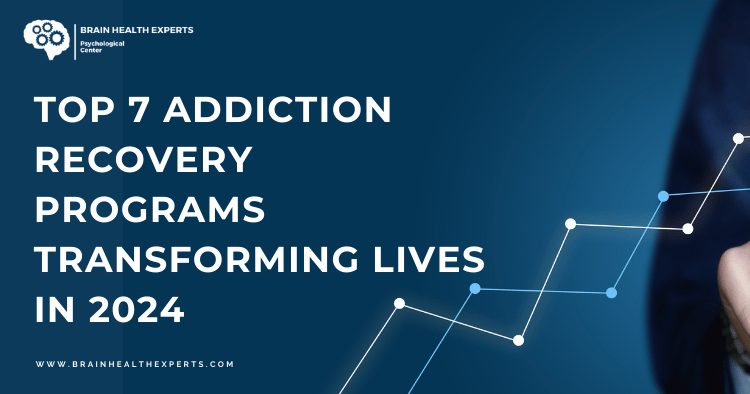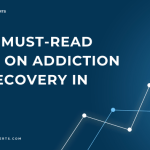Table of Contents
- Introduction
- 1. The Twelve-Step Program
- 2. SMART Recovery
- 3. Refuge Recovery
- 4. LifeRing Secular Recovery
- 5. The Recovery Village
- 6. Hazelden Betty Ford Foundation
- 7. Caron Treatment Centers
- Conclusion
Introduction
Addiction affects millions of individuals and their families globally, leaving a trail of destruction in its wake. However, the landscape of addiction recovery is continuously evolving, with innovative programs emerging to support those on their journey to sobriety. In 2024, several programs have made significant strides in transforming lives and fostering lasting recovery. This article explores the top seven addiction recovery programs that are making a difference this year.
1. The Twelve-Step Program
The Twelve-Step Program, pioneered by Alcoholics Anonymous (AA), remains one of the most recognized and widely utilized approaches to addiction recovery. This program emphasizes community support, personal accountability, and spiritual growth. With a strong foundation in peer support, individuals are encouraged to share their experiences, strength, and hope with each other.
Key Features:
- Peer Support: Meetings are open to anyone seeking help, creating a supportive network.
- Spiritual Growth: The program encourages participants to connect with a higher power, which can be a source of strength.
- Accessibility: Meetings are available worldwide, both in-person and online.
FAQs:
- What is the success rate of the Twelve-Step Program?
Success rates can vary, but many individuals report significant improvements in their lives after participating. - Are there alternatives for those who are not spiritual?
Yes, many alternatives exist that focus more on psychological and behavioral aspects of recovery.
For more information about the Twelve-Step Program, visit Alcoholics Anonymous.
2. SMART Recovery
SMART Recovery (Self-Management and Recovery Training) is a science-based program that empowers individuals to take charge of their recovery. Unlike traditional models, SMART emphasizes self-reliance and evidence-based techniques.
Key Features:
- Cognitive Behavioral Techniques: Participants learn tools to manage thoughts and behaviors.
- Self-Empowerment: Focus on personal responsibility and decision-making.
- Flexible Meetings: Available online and in various formats.
FAQs:
- How does SMART differ from the Twelve-Step Program?
SMART focuses on self-management and does not require a spiritual component, making it appealing to many individuals. - Is there a cost associated with SMART Recovery?
SMART Recovery meetings are generally free, although donations are appreciated.
Explore more about SMART Recovery at SMART Recovery.
3. Refuge Recovery
Refuge Recovery is a mindfulness-based addiction recovery program rooted in Buddhist principles. It provides a spiritual framework without traditional religious overtones, making it suitable for a diverse audience.
Key Features:
- Mindfulness Practices: Techniques such as meditation and breathing exercises are integral to healing.
- Community Focus: Emphasizes creating a compassionate and supportive community.
- Structured Approach: Offers a clear path for recovery through reflections and practices.
FAQs:
- Is Refuge Recovery only for those with substance abuse issues?
No, it also addresses behavioral addictions like gambling and eating disorders. - Can I attend if I’m not familiar with Buddhism?
Absolutely! The program is open to everyone, regardless of their background.
To learn more about Refuge Recovery, visit Refuge Recovery.
4. LifeRing Secular Recovery
LifeRing is a secular recovery program that focuses on personal empowerment and self-help. Its approach is built on the idea that individuals can effectively aid their own recovery journey without reliance on spirituality or religion.
Key Features:
- Self-Help Focus: Encourages participants to develop their strategies for recovery.
- Community Support: Offers opportunities for group meetings and discussions.
- Flexible Framework: Participants can tailor their recovery plan to suit their needs.
FAQs:
- What types of addictions does LifeRing address?
LifeRing is designed for various addictions, including drugs, alcohol, and behavioral issues. - How can I find a meeting near me?
You can search for local meetings through the LifeRing website.
For more information, check out LifeRing.
5. The Recovery Village
The Recovery Village provides a comprehensive approach to addiction treatment, offering a range of services from detox to outpatient care. Their programs are tailored to meet the individual needs of clients in a supportive environment.
Key Features:
- Integrated Care: Combines medical, therapeutic, and holistic approaches.
- Personalized Treatment Plans: Each client receives a treatment plan tailored to their unique situation.
- Aftercare Support: Focus on long-term recovery with follow-up services.
FAQs:
- What types of therapies are available at The Recovery Village?
They offer individual therapy, group therapy, family therapy, and holistic options like yoga. - Is insurance accepted?
Yes, they work with various insurance providers to make treatment accessible.
Visit The Recovery Village for more details.
6. Hazelden Betty Ford Foundation
The Hazelden Betty Ford Foundation is one of the most respected names in addiction recovery, providing a full continuum of care. Their evidence-based practices have helped countless individuals achieve lasting recovery.
Key Features:
- Comprehensive Services: Offers inpatient, outpatient, and aftercare programs.
- Research-Backed Practices: Utilizes the latest findings in addiction science.
- Family Involvement: Programs that include family members in the recovery process.
FAQs:
- How long do the programs last? Duration varies depending on the program and individual needs, ranging from a few weeks to several months.
- Are there options for adolescents? Yes, Hazelden offers specialized programs for teens.
Learn more about their programs at Hazelden Betty Ford Foundation.
7. Caron Treatment Centers
Caron Treatment Centers is known for its personalized addiction treatment programs that focus on dual diagnosis and co-occurring disorders. Their holistic methods integrate physical, emotional, and spiritual healing.
Key Features:
- Dual Diagnosis Support: Addresses both addiction and mental health issues simultaneously.
- Family Programs: Engages families in the recovery process to promote healing.
- Alumni Support: Offers resources for continued support after treatment.
FAQs:
- What is the typical length of stay? Length of stay varies based on individual needs but typically ranges from 30 days to several months.
- Is there a focus on aftercare? Yes, Caron places a strong emphasis on aftercare to help maintain long-term recovery.
For more information, explore Caron Treatment Centers.
Conclusion
In 2024, these seven addiction recovery programs are leading the way in helping individuals reclaim their lives from addiction. Whether you prefer a spiritual approach, evidence-based techniques, or community support, there is a program tailored to meet your needs. Remember, recovery is a journey, and finding the right support is crucial for lasting change. If you or a loved one is struggling with addiction, don’t hesitate to reach out for help. Your path to recovery begins today!
Also look for: If you’re interested in how positive thinking and mental health can influence recovery, explore these related articles:
- 10 Ways Positive Thinking Boosts Emotional Well-Being
- 10 Proven Stress Management Techniques for Daily Relief
- 10 Essential Techniques to Boost Your Resilience Today
- Top 10 Must-Read Books on Cognitive Behavioral Therapy
- 5 Ways Positive Thinking Fuels Your Path to Success
These resources can provide further insights into the importance of mental health practices in the recovery journey.




